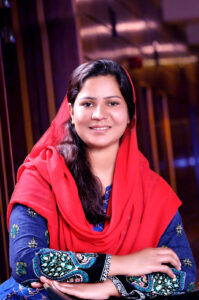Posted to Sister Zeph’s Journal
By Sister Zeph
On 27 March, 2013
By Zephaniah
Habiba is a 3rd-grade student at Zephaniah Free School. When I arrived at the school from the office today, I noticed she was crying uncontrollably. I approached her gently and inquired about the reason for her tears. She remained silent. I lifted her onto my lap and asked her once more. She tearfully explained that she was missing her mother.
In that moment, I felt utterly helpless. I couldn’t summon her mother, not because she had passed away, but because she had been forcibly expelled from her home by her husband. This heartbreaking situation is a common plight for many women in Pakistani society.
The issue boils down to a stark and distressing reality: the husband desires a son, yet the wife has given birth to eight daughters. In her husband’s eyes, this is a failing on her part, as she wishes to cease having more children due to exhaustion. To compound matters, the husband invites his girlfriend into their home, and the wife is powerless to prevent him from taking her to the bedroom. If she attempts to intervene, she risks losing her right to live in her husband’s house. Physical abuse is a constant threat; he wields a stick whenever he pleases, and if she cries out in pain, she is blamed once again. He even neglects to provide milk for their youngest daughter, seemingly hoping she will perish from hunger, as girls hold little value in his eyes.
The lady who is the mother of these children has lost her parents, leaving her completely alone. She didn’t bring her children with her when she left, and as a result, they lack food, proper clothing, and school supplies. They live in constant fear, with the elder sister forced to forgo school to care for her younger siblings.
In my lifetime, I’ve often heard young girls speak of their ideal husbands. They dream of finding a loving, faithful partner, as every human being desires to be loved. These dreams reflect a subconscious hope that their future husbands will be kind and loving. However, it is a harsh reality that much of the violence against women occurs within their own homes.
I recall a girl who was a friend of my elder sister’s. She was brutally murdered by her own brother for the “sin” of falling in love with a boy. While her brother spent some time in jail, he was later released due to lack of evidence. The case was abandoned, and it appeared that the act was justified in the eyes of both the community and his own family. In this society, the unforgivable sin for a woman seems to be wanting to live life on her own terms.
I once conversed with a highly educated man who had studied abroad. He believed it was reasonable to consult a girl’s opinion before arranging her marriage. However, he also believed it was unfair to allow her to meet or speak to the prospective groom before the wedding. This perspective is fundamentally flawed; how can she decide if he is a suitable partner for her without getting to know him? The only way to truly understand someone is through conversation and interaction.
There is a student in my school who is pursuing a bachelor’s degree in Arts. When I attempted to take her photograph, she declined, explaining that it was not permitted in her family. Last month, her elder sister got married, and her brothers forbade photographs to be taken even at her own wedding. This rule was conveyed to her in-laws beforehand, and breaking it would have resulted in the groom’s family returning without the bride.
I often feel that the women in my society are starved for love. When they finally find it, they are willing to sacrifice everything for it. From the moment of their birth, the men in their families aim to protect them from other men, but they often forget to love them. Protection can indeed be a form of love, but it should never involve confining someone to a home like a prison. Prisons are meant for punishment, not protection, and being a woman is not a crime.

